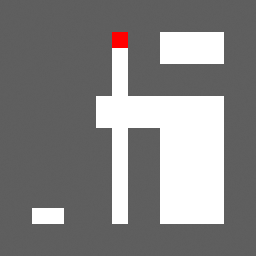full contents of the book:
Nothing & Dot (Prolog)
Purpose
Contemplated
Entity
Consciousness
Two-Aspect (dualistic) Entity
Fourth dimension and ...
Society and Humanity
Fifth dimension and ...
Firstoccurence
Act of the “I”
The Proc.of study.the Act of "I"
The Meaning of Being
Development of Entity
The Collective Reality
the Entity Development System
Echo (Reflection)
Real Aspect of the Global I
About Worldview
Space-Time
Attitude toward Yourself
Attitude toward your body
Laziness
Fear
Hope (...for Miracle)
Adaptation
Identity of Personality
Relation [ Reason | Body ]
Free Will
Hard problem of Consciousness
Indistinguish and Identity
Matter
Gnoseology
Epistemology
Separation
to the home page
— Chapter Two —
————————————————————————————
————————————————————————————
PURPOSE
We are sincerely glad to meet people interested in development, studying sciences, striving to "Know Thyself"*. Some consider this to be the most important task. But, those interested fail to define the questions that lay the foundation for such research. We believe that setting research goals can begin with an analysis of the "Act of Self-Credibility of the "I"" - according to the method of Rene Descartes "I think, therefore I am"**. This is the most famous of the universal keys to the beginning of knowledge. There are other ways, through asking questions:
—How is the World structured?
—What is “I”? and,
—What is the meaning of life?
It is well known that many great minds have tried to answer these complex questions over the millennia. Almost every one of those learned thinkers formulated intricate postulates and wrote complex treatises to explain the Laws of Being – naturally embracing the horizons of metaphysics. But, through experience, philosophical thought developed together with civilization, culture and science, the number of tricky questions grew rapidly – and the ability to think in general changed. Humanity learned to philosophize, moving along a complex, very thorny path. Epoch after Epoch, this work became more complicated, but people managed to ‘drill deeper and deeper’. There will be no end to research. This is wonderful, because it is philosophy that teaches thinking and logical techniques. But, especially, metaphysics - contributes to the development of all sciences, and serves as a method of reorganizing the mind - opening up opportunities for finding new Ideas, activating lively insight, cultivating ingenuity, and unusual sharpness of mind;
Our questions will remain the same. We do not plan to set particularly ambitious and impossible tasks, but we will try to at least one step, the slightest bit, advance in the already existing (but frozen) studies, of all generations without exception. An important task will be to define our desire for simplicity of presentation, focusing on the most ordinary reader - a lover of fiction, interested in answers to the questions posed here. In our reasoning we will be stubborn, will use the method of
This is real research.
Therefore, to expand the scope of the current thought, sometimes it will be necessary to jump from one topic to another, because they are closely related. It should be noted that we do not intend to arrogantly contradict and argue with anyone. We will not criticize the scientists of the past - we will show them Respect, and express sincere Gratitude, for their invaluable contribution to the development of Philosophical thought and the prosperity of humanity. So, we define the main Goals as - to get answers to the following questions:
How is the World structured? What is “I”? and, What is the meaning of life?
We will be grateful if at least something previously unknown is revealed to us - new, interesting, or useful;
*(Ancient Greek: Γνῶθι σεαυτόν, “Know Thyself” inscription on the wall in the temple of Apollo in Delphi, in the 6th century BC it was already popular); **(lat. Cogito ergo sum, "I think, therefore I am", R. Descartes, "Discourse on Method", 1637);
Being in a completely dark room, we are able to touch objects, hear sounds and feel smells, temperature, air movement, water flow, ... In addition, we can think, breathe and move, but this does not give us such a complete idea of the World as we have with the help of sight. Nevertheless, we can draw a conclusion about the relativity of tangible objects, imagine their shapes, judge the difference in size, the difference in strength, hardness, roughness, and other parameters. Without sight, we would probably be able to create a tactile picture limited by distance, or even a map, but – being blind from birth, and without the experience of sighted people – we would not have the opportunity to think about the stars and planets and would hardly reason about the infinity of the Universe. Without using sight, and without the experience of contemplation, it is extremely difficult, and probably impossible, to construct an adequate picture of the structure of the World. And even now, thanks to sight, we know exactly where to begin this study:
read next chapter >> << back
